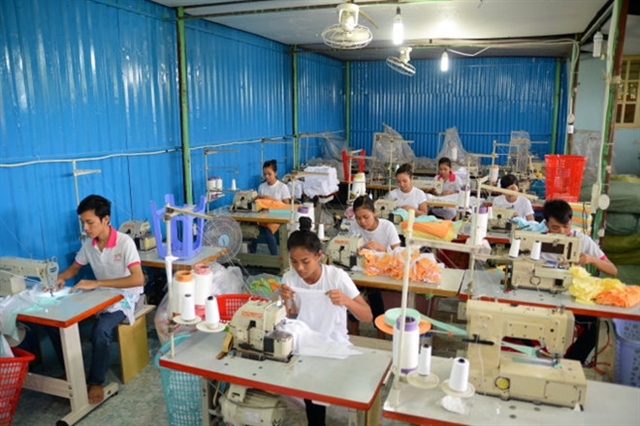 Economy
Economy


|
| Banks usually lend against collateral, but start-ups and agricultural projects do not have enough assets to pledge, small and medium-sized enterprises hard to access bank loans. VNS Photo Văn Châu |
CẦN THƠ – A conference meant to link up banks with companies in the Mekong Delta was held in Cần Thơ City on August as part of efforts to ease the difficulties small and medium-sized enterprises in the region have in accessing credit.
Đào Minh Tú, deputy governor of the State Bank of Việt Nam, told the conference that the delta is a dynamic economic region with strengths in agriculture, renewable energy and tourism.
Nguyễn Quốc Hùng, director of the central bank’s credit department, said the 500-odd credit organisations in the delta lent some VNĐ 71.3 trillion (US$3 billion) to firms in the first half of this year, but little to those in value chains or applying advanced technologies because of their lack of profits.
Many also cannot show enough finances for banks to lend, he said.
Many SMEs cannot meet the criteria to borrow though banks are willing to ease their conditions, he added.
A report from the Vietnam Chamber of Commerce and Industry (VCCI) said 70 per cent of SMEs in the Mekong Delta still cannot borrow from banks.
The greatest difficulty for SMEs and micro-enterprises remains the lack of funds, with most start-ups having no resources or collateral, only ideas and business plans.
Trần Minh Dũng, a business executive, said banks usually ask for mortgaging a lot of assets since they value them at a fraction of their market price. Thus, if an enterprise wants to borrow VNĐ100 billion, it must have properties worth VNĐ300-400 billion, he added.
Besides, they are cautious about lending to agricultural firms since it is associated with high risk, and borrowers are often unable to repay in time due to natural disasters and diseases and fact that sales of farm produce depend heavily on the Chinese market, a HCM City Development Joint Stock Commercial Bank (HD Bank) executive said.
The prices of agricultural produce are not consistent, making banks reluctant to lend to them.
Tú said banks and businesses should work together to find a way out. The central bank would consider relaxing lending requirements so that SMEs could get easier access to bank loans, he promised.
This would make available more loans, especially to priority sectors, simplify lending procedures and diversify banking products, he said.
Banks should offer lower interest rates and share the risks with businesses, he added. – VNS




